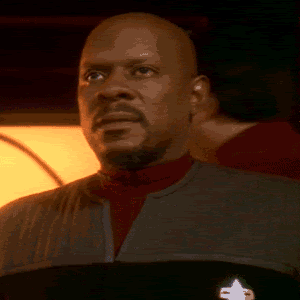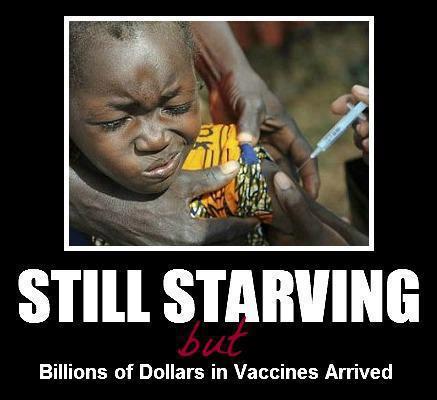Berniewood Hogan
IT'S BERNIE SANDERS WITH A STEEL CHAIR!
Nine female polio vaccinators have been killed in two shootings at health centres in northern Nigeria, police have told the BBC.
In the first attack in Kano the polio vaccinators were shot dead by gunmen who drove up on a motor tricycle.
Thirty minutes later gunmen targeted a clinic outside Kano city as the vaccinators prepared to start work.
Some Nigerian Muslim leaders have previously opposed polio vaccinations, claiming they could cause infertility.
On Thursday, a controversial Islamic cleric spoke out against the polio vaccination campaign, telling people that new cases of polio were caused by contaminated medicine.
Such opposition is a major reason why Nigeria is one of just three countries where polio is still endemic.
But this is believed to be the first time polio vaccinators have been attacked in the country.
Some Kano residents told the BBC's Yusuf Yakasai in the city that other people injured in the first attack had been taken to hospital.
A health official confirmed to the BBC that those killed in the second attack in Hotoro were female health workers - there were earlier reports that people waiting at the clinic may have been among those shot.
Witnesses in Hotoro told the BBC gunmen also approached the health centre using a motor tricycle.
Kano banned motorbikes from carrying passengers after a recent attack on the prominent Muslim leader, the emir of Kano.
Analysts believe the attacks may have been the work of the militant Islamist group Boko Haram but it has not yet commented and no group has said it carried out the attack.
The group - whose name translates as "Western education is forbidden" - says it is fighting to overthrow the government and impose Sharia.
It has been blamed for the deaths of some 1,400 people in central and northern Nigeria since 2010.
According to the Global Polio Eradication Initiative, there were 121 cases of polio in Nigeria last year, compared to 58 in Pakistan and 37 in Afghanistan.
In the past month, polio workers have also been targeted and killed in Pakistan, where the Taliban have threatened anti-polio efforts - accusing health workers of working as US spies and alleging that the vaccine makes children sterile.
BBC News - Nigeria polio vaccinators shot dead in Kano
SPREADING IGNORANCE HAS EFFECTS IN THE REAL WORLD, BROTHER!
In the first attack in Kano the polio vaccinators were shot dead by gunmen who drove up on a motor tricycle.
Thirty minutes later gunmen targeted a clinic outside Kano city as the vaccinators prepared to start work.
Some Nigerian Muslim leaders have previously opposed polio vaccinations, claiming they could cause infertility.
On Thursday, a controversial Islamic cleric spoke out against the polio vaccination campaign, telling people that new cases of polio were caused by contaminated medicine.
Such opposition is a major reason why Nigeria is one of just three countries where polio is still endemic.
But this is believed to be the first time polio vaccinators have been attacked in the country.
Some Kano residents told the BBC's Yusuf Yakasai in the city that other people injured in the first attack had been taken to hospital.
A health official confirmed to the BBC that those killed in the second attack in Hotoro were female health workers - there were earlier reports that people waiting at the clinic may have been among those shot.
Witnesses in Hotoro told the BBC gunmen also approached the health centre using a motor tricycle.
Kano banned motorbikes from carrying passengers after a recent attack on the prominent Muslim leader, the emir of Kano.
Analysts believe the attacks may have been the work of the militant Islamist group Boko Haram but it has not yet commented and no group has said it carried out the attack.
The group - whose name translates as "Western education is forbidden" - says it is fighting to overthrow the government and impose Sharia.
It has been blamed for the deaths of some 1,400 people in central and northern Nigeria since 2010.
According to the Global Polio Eradication Initiative, there were 121 cases of polio in Nigeria last year, compared to 58 in Pakistan and 37 in Afghanistan.
In the past month, polio workers have also been targeted and killed in Pakistan, where the Taliban have threatened anti-polio efforts - accusing health workers of working as US spies and alleging that the vaccine makes children sterile.
BBC News - Nigeria polio vaccinators shot dead in Kano
SPREADING IGNORANCE HAS EFFECTS IN THE REAL WORLD, BROTHER!





 I hardly see people posting articles that deal with violence in South Sudan, or in the Congo, which are majority Christian countries. Didn't Christian Tutis kill over 300,000 Hututs, or vice versa in Rawanda
I hardly see people posting articles that deal with violence in South Sudan, or in the Congo, which are majority Christian countries. Didn't Christian Tutis kill over 300,000 Hututs, or vice versa in Rawanda  ?
?